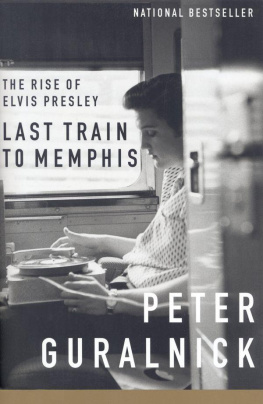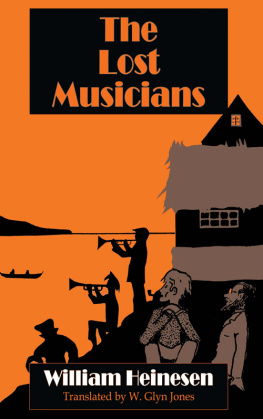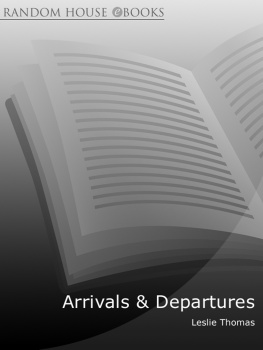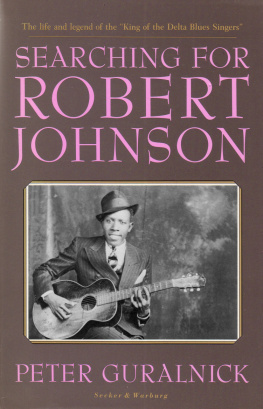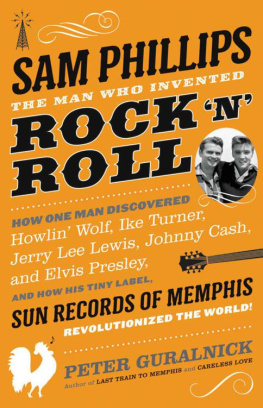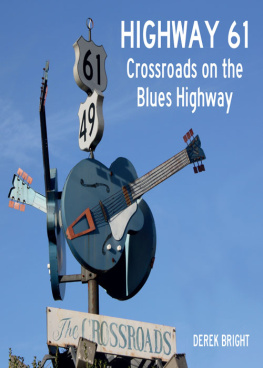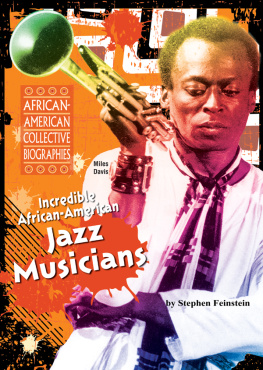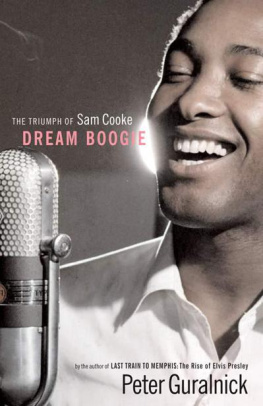Guralnick - Lost Highway: Journeys & Arrivals of American Musicians
Here you can read online Guralnick - Lost Highway: Journeys & Arrivals of American Musicians full text of the book (entire story) in english for free. Download pdf and epub, get meaning, cover and reviews about this ebook. year: 2011, publisher: Little, Brown and Company, genre: Detective and thriller. Description of the work, (preface) as well as reviews are available. Best literature library LitArk.com created for fans of good reading and offers a wide selection of genres:
Romance novel
Science fiction
Adventure
Detective
Science
History
Home and family
Prose
Art
Politics
Computer
Non-fiction
Religion
Business
Children
Humor
Choose a favorite category and find really read worthwhile books. Enjoy immersion in the world of imagination, feel the emotions of the characters or learn something new for yourself, make an fascinating discovery.

- Book:Lost Highway: Journeys & Arrivals of American Musicians
- Author:
- Publisher:Little, Brown and Company
- Genre:
- Year:2011
- Rating:4 / 5
- Favourites:Add to favourites
- Your mark:
- 80
- 1
- 2
- 3
- 4
- 5
Lost Highway: Journeys & Arrivals of American Musicians: summary, description and annotation
We offer to read an annotation, description, summary or preface (depends on what the author of the book "Lost Highway: Journeys & Arrivals of American Musicians" wrote himself). If you haven't found the necessary information about the book — write in the comments, we will try to find it.
Lost Highway: Journeys & Arrivals of American Musicians — read online for free the complete book (whole text) full work
Below is the text of the book, divided by pages. System saving the place of the last page read, allows you to conveniently read the book "Lost Highway: Journeys & Arrivals of American Musicians" online for free, without having to search again every time where you left off. Put a bookmark, and you can go to the page where you finished reading at any time.
Font size:
Interval:
Bookmark:
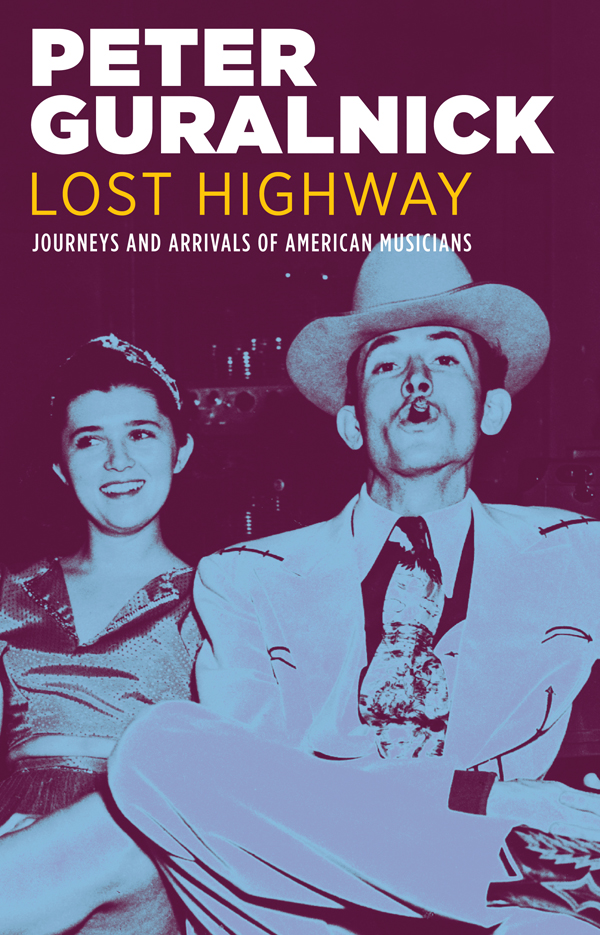
In accordance with the U.S. Copyright Act of 1976, the scanning, uploading, and electronic sharing of any part of this book without the permission of the publisher constitute unlawful piracy and theft of the authors intellectual property. If you would like to use material from the book (other than for review purposes), prior written permission must be obtained by contacting the publisher at permissions@hbgusa.com. Thank you for your support of the authors rights.
Copyright 1979, 1989, 1999 by Peter Guralnick
Cover design by Susan Marsh; cover photo: collection of Less Leverett. Cover copyright 2012 by Hachette Book Group, Inc.
All rights reserved. In accordance with the U.S. Copyright Act of 1976, the scanning, uploading, and electronic sharing of any part of this book without the permission of the publisher is unlawful piracy and theft of the authors intellectual property. If you would like to use material from the book (other than for review purposes), prior written permission must be obtained by contacting the publisher at permissions@hbgusa.com. Thank you for your support of the authors rights.
Little, Brown and Company
Hachette Book Group
237 Park Avenue, New York, NY 10017
littlebrown.com
twitter.com/littlebrown
peterguralnick.com
First e-book edition: December 2012
The publisher is not responsible for websites (or their content) that are not owned by the publisher.
The Hachette Speakers Bureau provides a wide range of authors for speaking events. To find out more, go to hachettespeakersbureau.com or call (866) 376-6591.
Most of the pieces in this book have appeared in different form in Rolling Stone, The Boston Phoenix, The Real Paper, Country Music, Living Blues, New Kommotion, Country Music Journal, The Rolling Stone Illustrated History of Rock & Roll, Fusion, Melody Maker, The Village Voice, and The New York Times Magazine.
ISBN 978-0-316-20674-7
For Sam Phillips and Chester Burnett, the real heroes of rock n roll
F OR THEIR continuing help and encouragement over the weeks, months, and years Id like to thank: Bill Williams, Doug Green, Joe McEwen, Knox Phillips, Al Bianculli, Fred Click, Scott Billington, Peter Stromberg, Michael Bane, Dick Shurman, Rick Stafford, Steve Tomashefsky, Fred Davis, R. O. Curtis, Valerie Wilmer, Susan Marsh, Bruce Iglauer, Jim and Amy ONeal, Bob Koester, Bob Claypool, David Morton, Bill Millar, Kelly Delaney, and Kit Rachlis. Grateful acknowledgment is made to all the photographers and collectors who so generously gave of their time and resources. Special thanks to Jacob, Nina, and Alexandra for their help in the difficult business of analysis and transcription. To the artists themselves I owe an incalculable debt both for the music and for their very thoughtfulness and consideration. And I would especially like to thank my editor, Harris Dienstfrey, for his insights, suggestions, and empathy as well as for turning what can be a painful process into an altogether pleasant and rewarding experience.
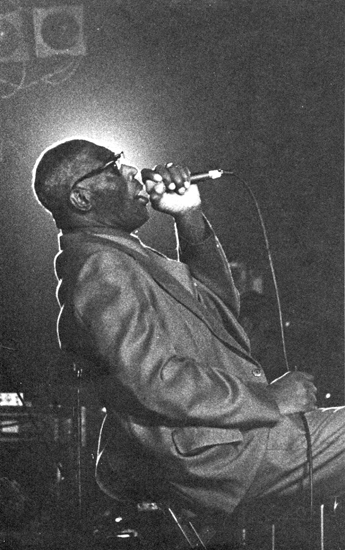
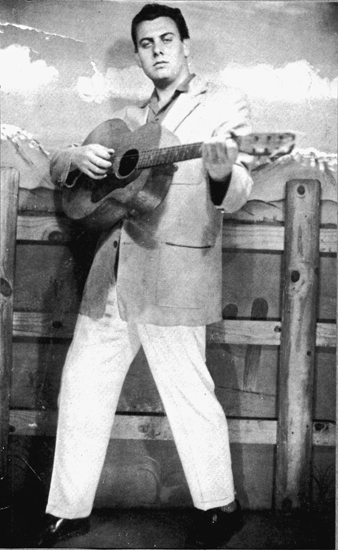
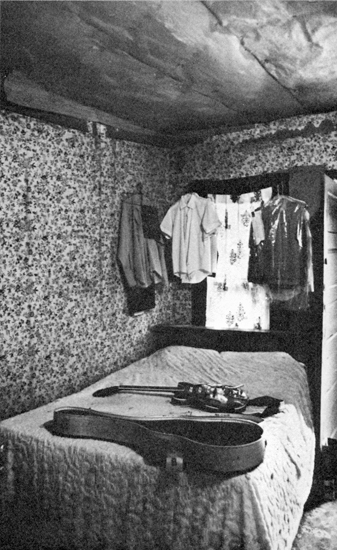
I NEVER WANTED to be a critic. Perhaps I should amend that to explain that my initial impulse to write about music and musicians stemmed solely from a personal enthusiasm, from a conviction that what I was writing about was important and could be important to others, too. Thats why I wrote Feel Like Going Home, primarily a collection of portraits of bluesmen, and why I wrote this book as wellwhich to my mind is a companion volume (with a pronounced country emphasis) to the earlier work.
Life changes, and circumstances do, too, though. When I wrote Feel Like Going Home some years ago, I think I still preserved, in however deliberate a way, the passionate naivet I felt essential to the proper love of rock n roll. The final words of the book in fact announced a swan song to my whole brief critical career, in order to sustain that very naivet. This is what you call definition by avoidance, a not uncommon practice, but after almost four years I started writing about music again, not only because the magic was in the music but because the musicor the impulsewas in me. I set out once more to do stories on artists I admired, people whose stories had not often been told, in some cases long-standing heroes like Bobby Bland and Merle Haggard, in others recent discoveries like James Talley and Sleepy LaBeef. My aim was not objectivity; I was trying to pass along not a dry assessment but a passion. I believed in the people I was writing about and their art.
At the same time I couldnt help but notice the difference in tone that had crept into my work. For me, as much as for the musicians I was writing about, what once stemmed from the purest of commitments had become almost inevitably a craft. I noticed not only that I had to struggle against convenient formulations; I had learned enough so that these very formulationswhich once might have passed my lips with an unquestioning air of moral authority (racism, philistinism, and big business were ruining the country)no longer rang quite true for me any more. I reread what I once had written, and it seemed right to me, it was not that I disagreed with what I had said, it was just that I could no longer say it so simply. Moreover, there was another side to it which I frequently chose to deny to myself; I found that I was enjoying some part of my new professional role. It was not that I wanted to be anything exactly, like a Doctor or a Lawyer or even a Writer; that I had struggled against all of my life (unquestionably I wanted to write, and did, but for me there was always an ultimate existential distinction between doing and naming); now, though, there was no question that on some level the idea of interviewing famous people, the shock of finding myself in strange airports and stranger hotels, the image of myself as reporter digging for a story (surely no one else could take that image seriously) appealed to me.
I had discovered what Murray Kempton has called the lure of going around. I have done commentary, said Kempton, do it still, and try to do it as best I can; but it can never be for me what going around is. The journalism that comments or pretends to explain has always been for me somehow wanting in the qualities that are most life-enhancing. The province of those who go around is the immediate, the brief, and the early forgotten. But it is a province that anyone who has ceased to go around will always miss as the ground he walked with a high and an anticipatory heart when he was young.
Well, maybe Im making too much of it. Perhaps this is just romantic pigeonholing, and what I am doing is quite different from what Kempton was describing, but in a way I began to identify with my subjects, began to see myself like them stranded out on the highway, for brief moments anyway taking up the strangely disembodied life of the road.
Because that is how all the subjects in this book are linkedat least it is one way. For each and every one of the active performers the road has become journey, arrival, process, definition, virtually replacing in almost every instance the very impetus that set them out on the road in the first place. For someone like Ernest Tubb, the road has become almost an escape, providing him with a welcome refuge from all the nagging problems that assault him at home. On his bus he has surrounded himself with all the creature comforts (television, paperback novels, card-playing buddies, and a sure relief from sleeplessness in the whirring hum of the wheels); as one of his longtime associates says, I think Ernest will die right in the back of that damn bus. Similarly for Bobby Bland, the road has become a refuge, it has insulated him against all the distractions of the street, given him an aura and a retinue that serve to mask his fears and insecurities, indeed his helplessness in the face of tasks that seem commonplace to those who live in the square world of nine to five.
Font size:
Interval:
Bookmark:
Similar books «Lost Highway: Journeys & Arrivals of American Musicians»
Look at similar books to Lost Highway: Journeys & Arrivals of American Musicians. We have selected literature similar in name and meaning in the hope of providing readers with more options to find new, interesting, not yet read works.
Discussion, reviews of the book Lost Highway: Journeys & Arrivals of American Musicians and just readers' own opinions. Leave your comments, write what you think about the work, its meaning or the main characters. Specify what exactly you liked and what you didn't like, and why you think so.


